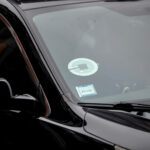Tennessee State Fire Marshal and Insurance Commissioner, Leslie Newman, reminds Tennesseans that being safe while cooking outdoors is just as important as practicing fire safety while cooking indoors.
According to the National Fire Protection Association (NFPA), gas and charcoal grills cause an average of 900 home structure fires and 3,500 home outdoor fires each year. Half of all gas and charcoal grill fires begin on an exterior balcony or unenclosed porch, so it is important to grill outside, well away from the home.
Safety Tips for Outdoor Grilling
•Position the grill away from siding, deck railings, overhanging eaves and overhanging branches.
•Place the grill a safe distance from lawn games, play areas and foot traffic.
•Keep children and pets away from the grill area: declare a three-foot “safe zone” around the grill.
•Put out several long-handled grilling tools to give the chef plenty of clearance from heat and flames when handling food.
•Periodically remove grease buildup in trays to prevent ignition by a hot grill.
Gas grills have a higher fire risk than charcoal grills. Leaks and breaks in the gas cylinder or hose are the leading cause, accounting for nearly half of gas grill fires. Placing combustibles too close to heat and leaving cooking unattended are two other leading causes.
Gas Grill Safety Tips
•Check the gas cylinder hose for leaks before using it for the first time each year. A light soap and water solution applied to the hose will quickly reveal escaping propane by bubbling.
•If you determine your grill has a gas leak: Turn off the valve on the tank and have the grill serviced by a professional before using it again.
•If you smell gas while cooking, immediately get away from the grill and call the fire department. Do not attempt to move the grill.
•Use only gas cylinders with an overfill protection device. OPDs are easily identified by their triangular-shaped hand wheel. OPDs shut off the flow of gas before capacity is reached, limiting the potential for release of propane gas if the cylinder heats up.
•Use only equipment bearing the mark of an independent testing laboratory. Follow the manufacturers’ instructions on how to set up the grill and maintain it.
•Never store propane gas cylinders in buildings or garages. If you store a gas grill inside during the winter, disconnect the cylinder and leave it outside.
Source: Tennessee Fire Marshal Office
Was this article valuable?
Here are more articles you may enjoy.

 Walmart to Pay $100 Million to Settle FTC Case on Driver Wages
Walmart to Pay $100 Million to Settle FTC Case on Driver Wages  Claims Handling Breakdowns From LA Wildfires One Year on
Claims Handling Breakdowns From LA Wildfires One Year on  Taxi Insurer Failed to Defend Uber in Crash Cases, Judge Says
Taxi Insurer Failed to Defend Uber in Crash Cases, Judge Says  Stellantis Weighs Using China EV Tech for Affordable Cars
Stellantis Weighs Using China EV Tech for Affordable Cars 